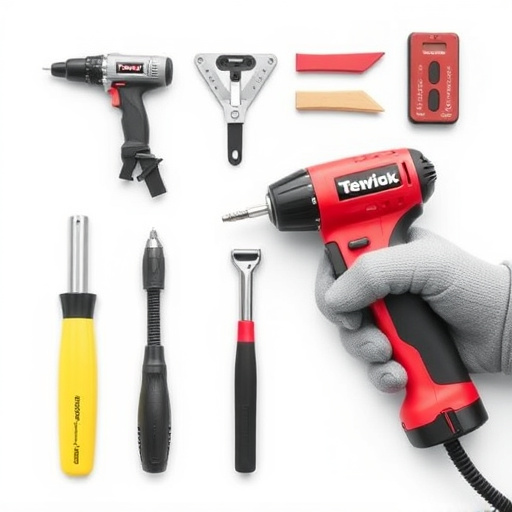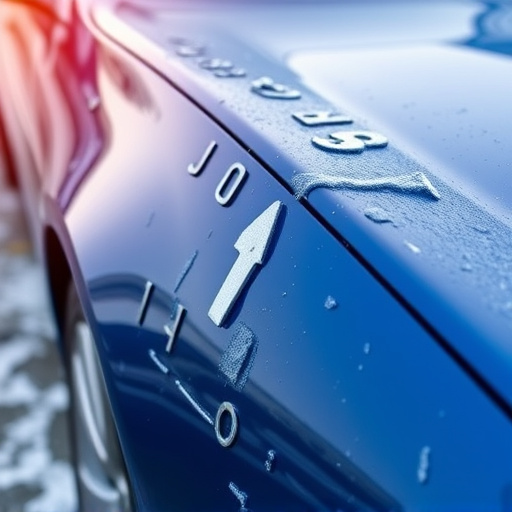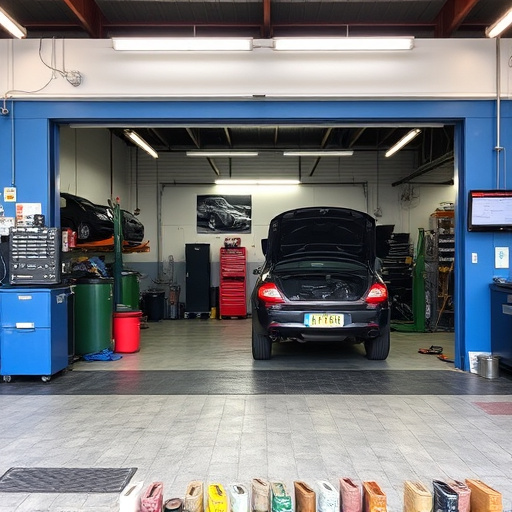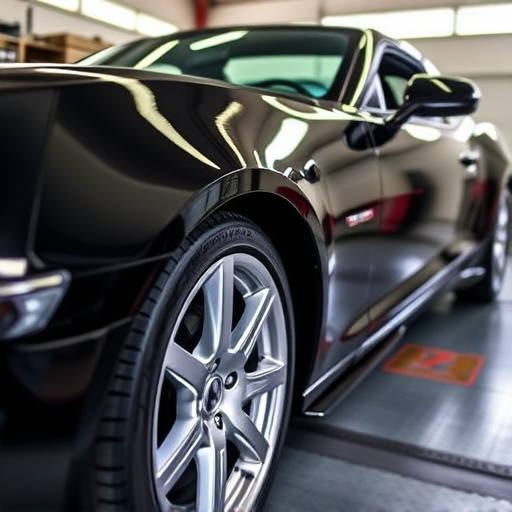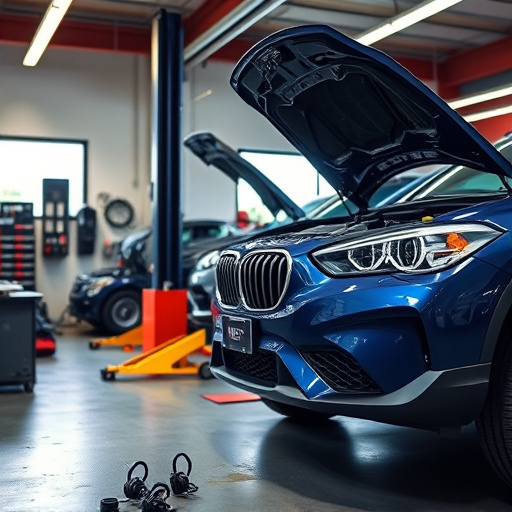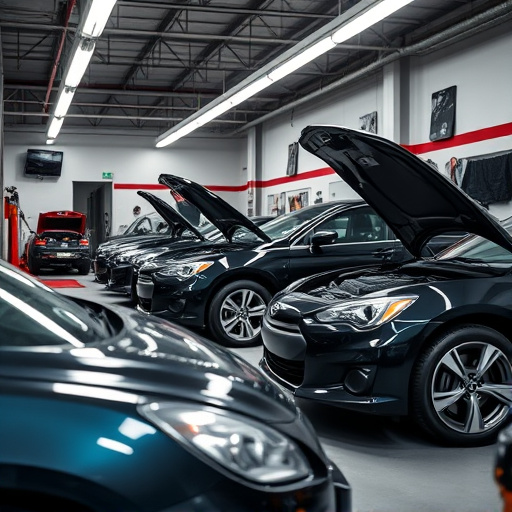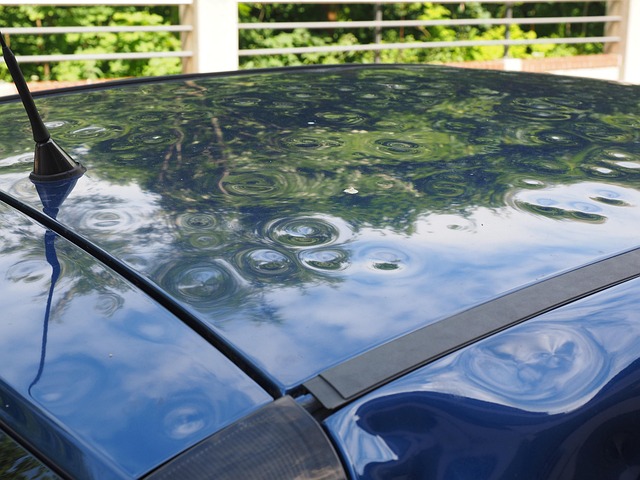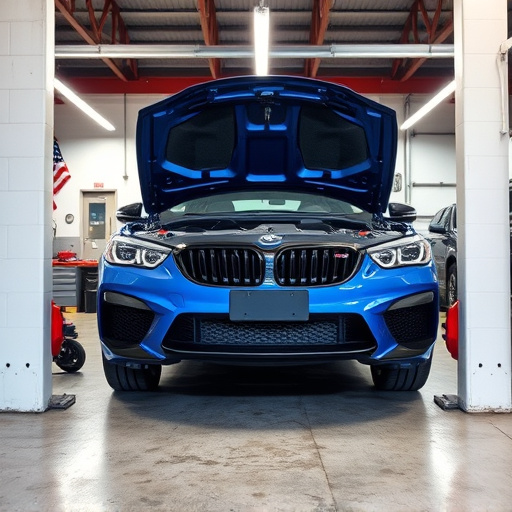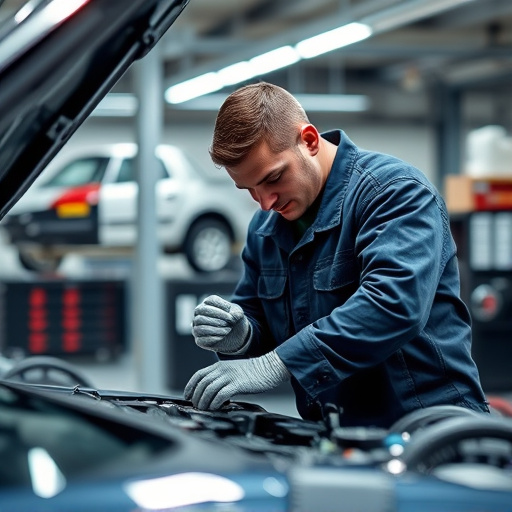The growing popularity of electric cars is reshaping auto body repair services, requiring specialized skills and equipment for EV-specific repairs while maintaining structural integrity and safety. Traditional shops must adapt by investing in training and tools for EV painting and repair techniques to meet market demands and cater to the expanding electric car body repair sector.
In today’s rapidly evolving market, the rise of electric vehicles (EVs) is transforming the automotive landscape. As demand surges for these eco-friendly alternatives, so does the need for specialized electric car body repair services. This article explores the unique challenges and advantages of repairing EV bodies, delving into advanced materials, safety standards, and environmental benefits. We also look ahead to future trends, including technological advancements, automation, and sustainability initiatives shaping the industry’s growth.
- The Rise of Electric Vehicles and Its Impact on Body Repair
- – Increasing demand for electric cars
- – Unique challenges in repairing EV bodies
The Rise of Electric Vehicles and Its Impact on Body Repair

The shift towards electric vehicles (EVs) is reshaping the automotive industry, and this trend has profound implications for traditional auto body repair practices. As electric cars gain popularity, so does the need for specialized services catering to their unique requirements. The rise of EVs presents both challenges and opportunities for body repair professionals. One key aspect is the varying approach to damage and repairs; EV bodies often have different construction methods compared to conventional vehicles, incorporating lightweight materials and advanced designs.
This shift in vehicle technology demands that auto body shops adapt their skills and tools to accommodate electric car body repair. Services such as dent removal and auto bodywork must evolve to handle the specific needs of EVs, ensuring not only aesthetic restoration but also maintaining the structural integrity and performance of these innovative vehicles. With the increasing demand for efficient and sustainable transportation, staying abreast of these changes is crucial for body repair businesses to remain competitive in today’s market.
– Increasing demand for electric cars

The demand for electric cars is skyrocketing globally, as consumers become increasingly conscious of environmental sustainability and the need for cleaner transportation options. This shift towards electrification has led to a corresponding rise in the number of electric vehicles (EVs) on our roads. However, with this growth comes a unique challenge—the increasing need for specialized electric car body repair services. As the market for EVs expands, so does the requirement for skilled technicians and advanced facilities capable of handling the specific needs of these innovative vehicles.
The rise in EV popularity poses both opportunities and challenges for the automotive industry. Traditional auto body shops are now required to adapt and acquire expertise in auto painting and repair techniques tailored to electric vehicles, which often have distinct construction and safety features compared to their internal combustion engine counterparts. Therefore, investing in training and equipment for car paint services that cater to EVs is becoming a priority for many auto body shop owners to meet the demands of today’s market.
– Unique challenges in repairing EV bodies

The rise of electric vehicles (EVs) has brought about a new era in automotive innovation, but it also presents unique challenges for body repair professionals. Unlike traditional internal combustion engine (ICE) vehicles, EV bodies require specialized knowledge and techniques to ensure proper repairs due to their complex electrical systems and advanced materials. For instance, the high-voltage batteries used in EVs must be handled with utmost care during the repair process to prevent safety hazards.
One of the key considerations in electric car body repair is ensuring the structural integrity of the vehicle while minimizing disruptions to its intricate electrical architecture. This demands a meticulous approach where every component is assessed and replaced with either original equipment manufacturer (OEM) parts or high-quality alternatives that meet specific performance standards. Moreover, as EVs continue to evolve, so do their repair methods, making it crucial for automotive repair shops to stay updated with the latest technologies and training in mercedes benz repair and vehicle repair sectors to cater to this growing market.
As the world shifts towards sustainable transportation, the demand for electric vehicles (EVs) is skyrocketing. This trend presents both opportunities and challenges for the automotive industry, particularly in the realm of electric car body repair. With EV bodies requiring specialized knowledge and tools to fix due to their distinct construction and components, skilled technicians are increasingly important. Investing in training and infrastructure for electric car body repair will ensure that garages keep up with this evolving market, providing efficient and effective services to support the growing number of EV owners.

